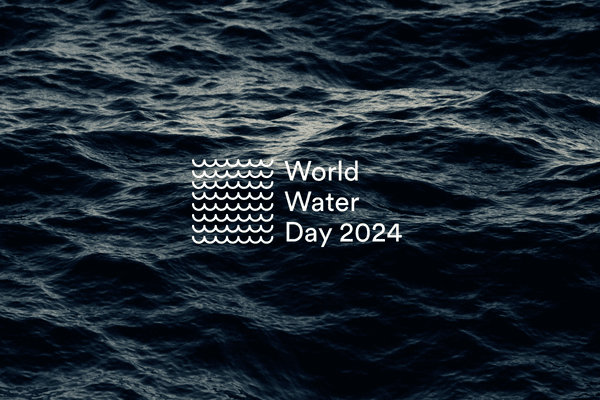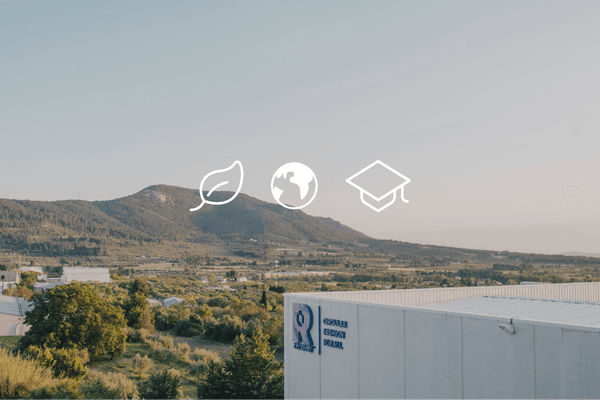World Water Day: Recover™ innovates to save water

Site map

In recent weeks, the Recover™ team has attended a variety of industry events as speakers, attendees, and participants. Passionate experts in materials science, textiles, fashion and sustainability make up the team and are always staying on top of new industry happenings. Let’s recap what our team took away from recent events!
Reaffirming its commitment to the Sustainable Development Goals (SDGs) and its dedication to forging ties across the global fashion and lifestyle industries, Recover™ recently joined the United Nations Fashion and Lifestyle Network as a Thought Partner for 2024.
The UN Fashion and Lifestyle Network, led by the United Nations Office for Partnerships and the Fashion Impact Fund, serves as a catalyst for sustainable development within the fashion and lifestyle sectors. It plays a key role in advancing the SDGs by connecting industry stakeholders, media, governments, and UN entities. Together, Recover™ and the UN Fashion and Lifestyle Network share a vision of building resilient and traceable supply chains necessary to achieve circularity. As a producer of premium recycled cotton fiber and the first in its space to scale its high-value technology globally, Recover™ is a significant actor within the supply chain to inspire change. It recently reiterated its support for the Ten Principles of the United Nations Global Compact, and its commitment to taking actions that benefit the wider community was a key driver in the company’s selection as a Thought Partner for 2024.
To honor this new partnership, Recover™ team members attended the UNFLN Annual Meeting at the UN Headquarters in New York and CEO Anders Sjöblom spoke.
Sjöblom emphasized that what sets Recover™ apart from other cotton recyclers is the level and consistency in quality – coming from 75 years in the industry. Moreover, the data-backed best in the industry transparency and traceability, extensive services in sustainability strategy and education, and technical adaption of the fiber in the supply chain gives Recover™ a significant foot forward. He shared that Recover has been built as an ingredient brand which retailers and brands can show to motivate a purchase from the customer.



Global Fashion Summit is the leading international forum for sustainability in fashion and is presented by Global Fashion Agenda. This year’s summit had a clear message to take action and also touched on decarbonization, policy, eco-design, circularity, transparency, and traceability. Paul Polman was optimistic and shared that the solutions for the fashion industry exist and companies no longer need to focus as much on innovation, rather that less bad is not enough good anymore and that less bad is still bad. Ultimately, the mentality of doing what is good for fashion and bad for the planet is no longer an option for the industry because the cost of the effects are higher than the cost of the investments.
Ana Rodes, Recover’s Head of Sustainability, attended the Global Fashion Summit in Copenhagen and participated in the panel “The Preferred Fiber Face-off” along with HKRITA, Canopy, Mas Holdings, and other companies. The panel unpacked the extensive work being done across the value chain in order to accelerate the scalability of circular and low-carbon alternatives.
It is clear that government policies are a matter of concern for the industry. While the environmental need for circularity in the textile industry is undeniable, legislative decisions serve as strong drivers for consumers and businesses to move towards more circular models. At Recover™, we help the businesses we partner and collaborate with to stay on top of key legislative changes, and to always be one step ahead of industry standards.
Aligning with Recover’s constant innovation, the CEO attended Viva Technology, the biggest technology event in Europe, to discuss the opportunities and challenges of sustainability in fashion.
Exploring technological advancements in sustainability, Recover’s CEO emphasized the critical role of scaling technological innovations to enhance recyclability and introduce new sustainable materials. While many companies have pledged to prioritize sustainability and their top management might genuinely want to drive targets in the right direction, executing these commitments remains challenging. There is a pressing need to implement sustainability incentives and new ways to measure progress across entire organizations so that the targets are present in everyday decision-making.
Although consumers express a desire for sustainable products, their purchasing decisions often do not reflect this. Bridging this gap requires making sustainable products more desirable as well as educating consumers and brands about the long-term benefits of sustainable choices. High-quality, sustainable products by design will be the new standard, especially in the luxury segment. For volume retailers, adopting circularity and significantly increasing their use of recycled materials is the most impactful and easiest way to reduce the negative impact of their business model.
Scaling sustainability requires investments, and the financing of these investments must be distributed and coordinated across the value chain—it is not a task for a single brand or supplier—which is why collaboration and long-term partnerships are the only way to go.
European regulations will accelerate change, attract investments, and influence global standards while increasing transparency and accountability across the industry.



Formerly known as the Sustainable Apparel Coalition, Cascale one of the textile industry's leading alliance for sustainable production. As members of Cascale and leaders in sustainability, we have a continued commitment to improving our environmental performance and share the vision of the Cascale to creating a more sustainable, equitable, and just world for all.
Cascale one the most important global organizations for sustainability, comprised of over 300 stakeholders from several sectors such as retailers, brands, manufacturers, governments, academics, industry associations, and nonprofits. Their objective is to foster collaborative efforts towards establishing fair and sustainable business practices within the consumer goods industry. Originally known as the Sustainable Apparel Coalition, Cascale has evolved to encompass a broader spectrum of consumer goods, including apparel, footwear, home furnishing, sport, outdoor goods, bags and luggage.
Members of Recover’s Sustainability team attended this year’s Southern Europe Regional Meeting in Barcelona to continue groundbreaking sustainability efforts. At the heart of Cascale’s initiatives is the Higg Index, and it’s clear that brands appreciate the use of the Higg FEM/FSLM but are currently focusing on the mapping of their Tier 1.

